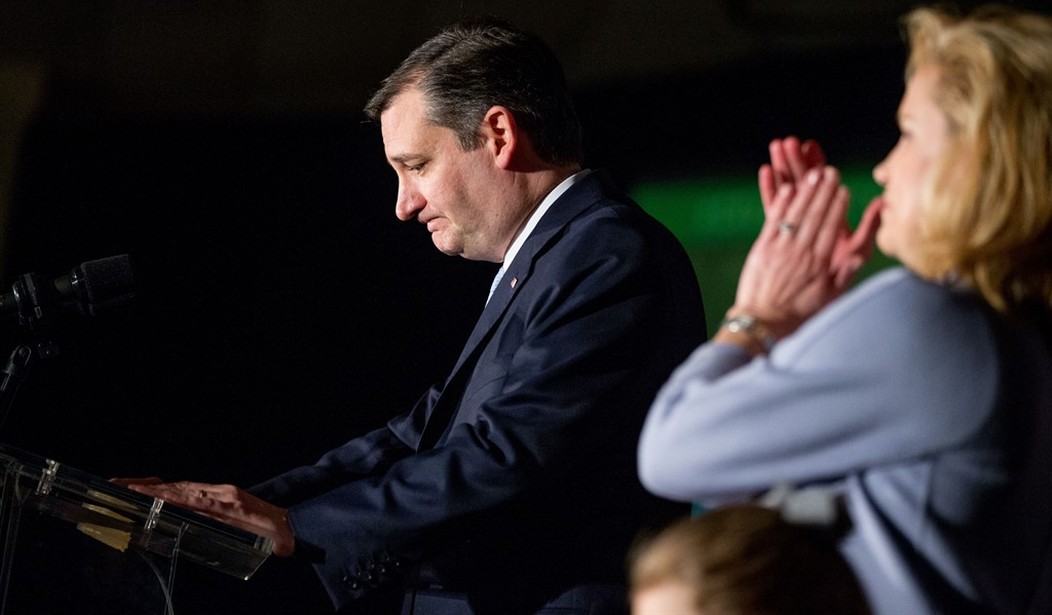If Sen. Ted Cruz (R-TX) can’t win in a state that’s especially tailored to his brand of conservatism, does this raise red flags for his campaign? The conservative firebrand was unable to win a single county in the South Carolina primary and lost the evangelical vote to Trump. Given this loss, it’s not alien to suggest that he won’t do well throughout the rest of the southern states. Moreover, after Super Tuesday, the number of states that could be good for a Cruz-like candidate (i.e. states with large evangelical voter blocs) diminishes.
Right now, Cruz hasn’t improved his standing in the polls in the last month, and while he may boast about having no friends in Washington–a good chunk of South Carolina voters thought that was problematic. While Rubio only won three counties, two of them were the most populous ones in the state. The Florida Senator also came in second after a disappointing showing in New Hampshire, and has been racking endorsements from prominent conservatives. Yet, the Donald factor remains a recurring theme for the cause of detonation for some candidacies, Cruz is no exception:
If the polls in South Carolina are right, then Mr. Cruz isn’t even Mr. Huckabee or Mr. Gingrich.Mr. Cruz is polling at around 20 percent of the vote in a state with a well-above-average number of evangelical voters. A number that low could be a sign that he has failed to broaden his appeal beyond the “very conservative” voters who powered his victory in Iowa.
[…]
A candidate with strength among activist conservatives and evangelical voters who could not excel in South Carolina would not be on track to win nationally. It would be akin to a Democratic presidential candidate who could not win the state of Washington or a Republican who could not win Tennessee. (Those 12 or 11 electoral votes wouldn’t be decisive, but those candidates would be quite unlikely to win Ohio if they weren’t winning on vastly more favorable terrain.)
[…]
But South Carolina has a lot in common with the Southern states on Super Tuesday: Alabama, Tennessee, Georgia, Texas, Oklahoma and Virginia. There’s not much reason to assume Mr. Cruz is going to do really well in Alabama or Georgia if he’s not doing well in South Carolina. The only exception is his home state, Texas, but he most likely won’t get too much credit for a win there.
Even if he does well in some Southern states, he probably won’t win by enough to amass a lopsided delegate edge.
Should that happen, Mr. Cruz will lack excuses. As he has noted, the “conservative lane” of the party is unusually clear. Mr. Gingrich and Mr. Huckabee had to deal with the likes of Rick Santorum or Fred Thompson. Mr. Cruz’s lane includes only a vanishing Ben Carson.
[…]
A Bloomberg/Selzer poll found that 47 percent of South Carolina voters thought Mr. Cruz’s lack of endorsements by his colleagues in the Senate was a negative, because it meant he “doesn’t have the necessary relationships to bring about change because people do not want to work with him.”
Recommended
Whereas Mr. Rubio, and yes, even Mr. Trump, have broader voter appeal, Cruz has remained committed to cobbling the consistent conservatives to his side to clinch the nomination akin to the Reagan-era. Yet, Cruz seems to forget the fact that the Gipper did have friends in Congress, and was able to persuade millions of Democratic voters to support his 1980 candidacy–and his ’84 re-elect. He was likable. Cruz may speak his mind, stand for conservative principles, and take on the establishment, but he’s lost almost every fight he’s picked. That’s not a resume of a would-be political standard bearer. It’s somewhat tragic in the sense that the man is exceptional at winning elections, but incapable of getting anything done once in office.
Team Cruz aired over 5,000 television ads this month before Election Day, and reaped zero dividends from it. On a side note, it might be time to re-evaluate big ad buys, but that’s a different matter. In all, Ted will likely get Trumped on Super Tuesday in the very regions he sees as his avenue to the nomination. After that, it’s a brutal slog, with voter demographics that aren’t exactly receptive to his wing of the party.

























Join the conversation as a VIP Member